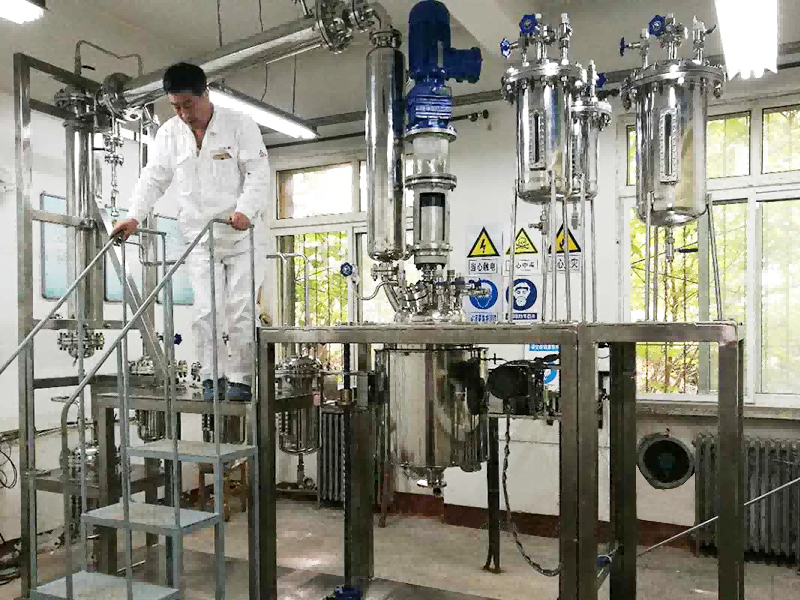Hey there! I'm a supplier for a Coal Chemical Pilot Plant, and today I wanna chat about how we can apply energy-saving technologies in these kinds of plants. Coal chemical pilot plants play a crucial role in the development of the coal chemical industry. They help us test new processes, develop new products, and optimize existing technologies. But they can also be energy hogs, and that's where energy-saving technologies come in.


Understanding the Energy Consumption in Coal Chemical Pilot Plants
First things first, let's take a look at where the energy goes in a coal chemical pilot plant. The main energy-consuming processes usually include coal gasification, synthesis, separation, and purification. Coal gasification is the process of converting coal into syngas (a mixture of carbon monoxide and hydrogen). This process requires a lot of heat, and most of the energy is used to heat the coal and the reactants.
Synthesis processes, like the Fischer - Tropsch synthesis to produce liquid fuels from syngas, also need a significant amount of energy to maintain the right temperature and pressure conditions. Separation and purification steps, such as Distillation Adsorption Extraction Facility, are used to separate the desired products from the reaction mixtures. These processes often involve heating, cooling, and compression, which all consume energy.
Energy - Saving Technologies for Coal Gasification
One of the key areas to focus on for energy saving is coal gasification. One effective technology is the use of high - efficiency gasifiers. Modern gasifiers are designed to have better heat transfer and reaction efficiency. For example, some gasifiers use a two - stage gasification process. In the first stage, coal is pyrolyzed at a relatively low temperature, and in the second stage, the char and volatiles are gasified at a higher temperature. This approach can improve the gasification efficiency and reduce the energy required for the process.
Another way is to recover and reuse the waste heat from the gasification process. The hot syngas produced in the gasifier contains a large amount of heat. By using heat exchangers, we can transfer this heat to other parts of the plant, such as pre - heating the coal feed or generating steam for other processes. This not only reduces the external energy input but also improves the overall energy efficiency of the plant.
Energy - Saving in Synthesis Processes
In synthesis processes, especially in the Catalytic Cracking Test Unit, optimizing the reaction conditions can lead to significant energy savings. We can use advanced catalysts that can operate at lower temperatures and pressures. This reduces the energy required to maintain the reaction environment. For example, some new catalysts can promote the Fischer - Tropsch synthesis at temperatures 50 - 100 degrees Celsius lower than traditional catalysts.
Also, process integration is important. By integrating different synthesis processes, we can make better use of the reactants and energy. For instance, if one synthesis reaction produces a by - product that can be used as a reactant in another reaction, we can directly transfer it without the need for additional separation and purification steps, which saves energy.
Energy - Saving in Separation and Purification
Separation and purification steps are often energy - intensive, but there are several ways to save energy here. For distillation processes, we can use more efficient distillation columns. Modern distillation columns are designed with better internals, such as structured packings, which can improve the mass transfer efficiency and reduce the energy consumption for separation.
Adsorption and extraction processes can also be optimized. By using high - selectivity adsorbents or solvents, we can reduce the amount of material needed for separation, and thus save energy. Moreover, heat - integrated separation processes can be employed. For example, we can use the heat from the top of a distillation column to heat the bottom of another column, which reduces the overall energy demand for the separation process.
The Role of Automation and Control Systems
Automation and control systems are essential for energy - saving in a Coal Chemical Pilot Plant. These systems can monitor and adjust the operating parameters of the plant in real - time. For example, they can adjust the flow rates, temperatures, and pressures of different processes to ensure that they are operating at the most energy - efficient conditions.
Advanced control algorithms can predict the changes in the process and make proactive adjustments. For instance, if the quality of the coal feed changes, the control system can adjust the gasification parameters accordingly to maintain the optimal gasification efficiency. This not only saves energy but also improves the product quality and stability of the plant.
Benefits of Applying Energy - Saving Technologies
Applying energy - saving technologies in a coal chemical pilot plant brings several benefits. Firstly, it reduces the operating costs. Energy is one of the major cost components in a coal chemical plant. By saving energy, we can lower the production costs and make the products more competitive in the market.
Secondly, it is environmentally friendly. Reducing energy consumption means less coal is burned, which leads to lower emissions of greenhouse gases and other pollutants. This is in line with the global trend of sustainable development and environmental protection.
Finally, it helps in the development of new technologies. When we focus on energy - saving, we often need to explore new materials, processes, and equipment. This can drive innovation in the coal chemical industry and lead to the development of more advanced and sustainable technologies.
Contact for Purchase and洽谈
If you're interested in applying these energy - saving technologies in your coal chemical pilot plant, or if you want to learn more about our products and services, feel free to reach out. We're here to help you make your plant more energy - efficient and productive.
References
- "Coal Chemical Engineering Technology" - A comprehensive textbook on coal chemical processes and technologies.
- Research papers from journals like "Fuel Processing Technology" and "Chemical Engineering Journal" which cover recent advancements in energy - saving technologies in coal chemical plants.






